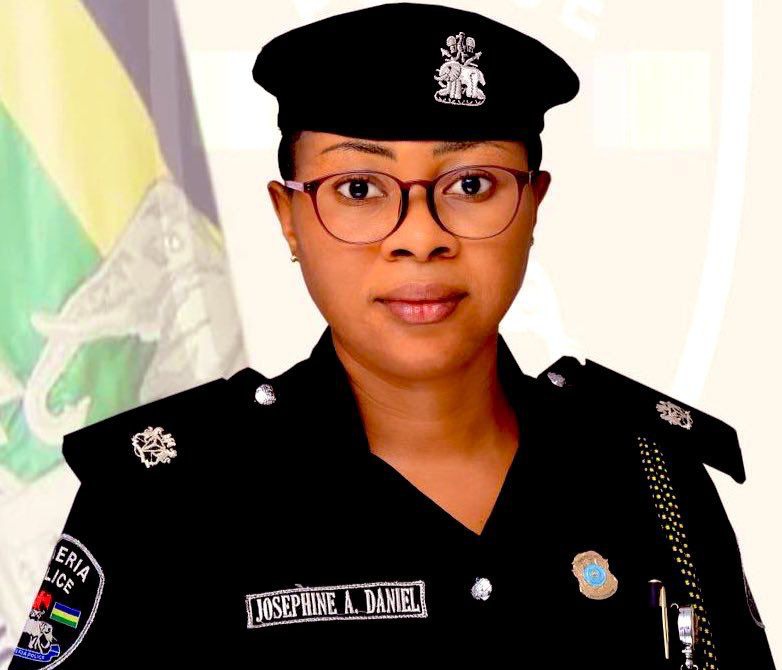Metro
Sermon: Religion: A Maligned Concept

By Babatunde Jose
Religion is an omnipresent and seamless part of daily life, taking an infinite variety of forms that are part of the distinctive quality of each community. Religion could thus not be seen as something apart and personal. It is, rather, a dimension of life that suffuses whatever people do. Religion has an effect on many people’s attitudes to everything, including such matters as savings, investment and a host of economic decisions. It influences area we had come to see as vital for successful development, like schooling, gender quality, and approaches to health care. In short, religion could be an important driver of change, even as it could be a break to progress…
James D. Wolfensohn former President of the World Bank
Religion provides the unifying power that grounds the socio-political, economic, technological, cultural and moral dynamics of a culture. This is particularly true of Africans for whom life is an intricate web of the sacred and the secular.
Our daily lives revolves around work, play, eat, recreation, spiritual fulfillment and obeying the calls of nature. It is when one aspect of our life dominates our lives to the exclusion and detriment of others that we become slaves to that aspect of our life. As Easter celebrations ended last Monday, we are looking forward to the holy month of Ramadan next week and people are beginning to question the role of religion in our lives. They claim that we are too religious; a state of affairs that has been termed the unprogressive effect of religion and a hindrance to development.
True enough, political leaders are known to exploit the religiosity of the people in their intra-elite competitions; however, the role of religion in society goes deeper than that. In fact, this might not be the whole truth as research in the developmental sciences are increasingly beginning to recognize the positive role religion could have in development.
Throughout its long history, the Church and Islam have been major sources of social services like schooling and medical care; inspiration for art, culture and philosophy; and influential player in politics. From the 11th to 13th centuries, medieval Europe absorbed information and ideas from Islamic civilization, which was then at its peak: Such as in astronomy, mathematics, medicine and science. The Islamic world also influenced other aspects of medieval European culture, including the arts, agriculture, music, technology, and textiles.
However, this is also true for the negative effects of religion, such as the conflicts that result in war and bloodshed, the separation of social classes, and the corruption throughout God’s kingdom, especially the unending sex scandal in the Catholic Church; or the radicalization of faith as witnessed by today’s Islamic insurgence. There is also the horrible events of the slave trade and colonization and the decimation of the cultures of non-European peoples, particularly Africa. It is these perceived negative effects of religion that has prompted many social scientists to condemn religion as irrelevant to socio economic development. However, Despite the general hostility among social science and professionals, the empirical evidence shows religion to be a very powerful and positive part of everyday life – Patrick McNamara, professor of sociology at the University of New Mexico.
Christianity, Traditional Religion and Islam, promotes integral development that goes beyond mere economic globalization, one could posit the thesis that religion if properly harnessed, could play a very important role in sustainable development despite conflicts, (at times violent), arising from religious intolerance.
No doubt, religion particularly in this clime commands the followership of millions. In social change theory, one of the most effective medium of change is diffusion of ideas and innovations; and religious bodies are most suited for this role. How great would it be, if our churches and mosques were to channel their weekly homilies (52 sermons a year from each church, mosque and other religious gatherings) to that great effort at bringing about social change in their followers; with a view to bringing about attitudinal dispositions that are amenable to socio economic betterment of the people? There is no doubt religion, if well channeled, could be made a veritable instrument of change and development.
“The paradox of growth in the face of poverty and inequality is a result of the inequity and injustice in Nigeria’s socio-politico-economic distribution, with 1% of the population, (politicians and bureaucrats) cornering the national resources to themselves while the rest of the populace wallow in abject poverty.
The role of religion for the sustainable development of Nigeria has been both positive and negative. Positively, religion stands as a reliable institution providing stepping stones to sustainable development; “from the days of the missionaries to the present, the church in Africa has focused its development strategy in two areas: education and healthcare.” And they have done remarkably well: Ditto for Islamic organizations, which have a proliferation of mission schools all over the country. They provide health and educational services through their hospitals, clinics and maternities, schools and colleges, vocational training centers, seminaries and universities. Some even, promote small scale businesses by granting loans to individuals and cooperative societies.
However, in spite of their laudable involvement in promoting progress and sustainable development, religions in Nigeria have in some ways been inhibiting sustainable development. Christianity and Islam are often antagonists, leading to religious conflicts resulting in loss of lives and destruction of properties. This has been intensified by the Jama’atu Ahlis Sunna Lidda’awati Wal-Jihad, better known as Boko Haram; which, since 2009, has caused the loss of thousands of lives and valuable government and business properties. Its terrorist activities in Nigeria have crippled the economy of North-Eastern Nigeria, creating insecurity in the country, driving away investors, foreign and local, and resulting in much government spending on security instead of on infrastructures.
It should be noted, however, that as the Council on Foreign Relations in a symposium,
“Religious Conflict in Nigeria,” (2007) discovered, most religious conflicts in Nigeria also have ethnic and political nuances. Yes!!! Politicians have hijacked religion to fight their wars.
Another reason for the upsurge of religious intolerance and violence is economic. The concomitant decline of investment in the education and economic well-being of people, especially the young, makes the latter a veritable reservoir and recruiting ground for religious fanatics or lunatics.
Religion also impedes sustainable development by tacit collaboration in corruption and mismanagement of the economy; mainly because religious leaders have failed to challenge the unjust structures that give rise to bad governance, corruption and social malaise: They have not spoken with one voice against the cycles of injustice; greed and self-aggrandizement of the political class that confiscates the state resources for personal use, thus dehumanizing ordinary Nigerians.
On the contrary, various religious groups have sought to benefit from the corruption and nepotism of the Nigerian system. As we enter another phase of religious activity with the coming Ramadan, religious leaders in Nigeria must figure out a way to honestly embrace peace and promote mutual coexistence by understanding one another’s religious beliefs. They must become the conscience of the people and speak up against the excesses of our corrupt and thieving leaders: And stop receiving the proceeds of corruption in the form of offerings, tithe and Zakat. Only then would religion become a veritable change agent.
Barka Juma’at and a happy weekend
Metro
Yerima: Abuja Police Debunk Reported Assassination Attempt

By Eric Elezuo
The Federal Capital Territory (FCT) Police have debunked reported assassination attempt on the life of Naval Lt MA Yerima, the soldier, who stood to the FCT Minister, Nyesom Wike, over a disputed land.
In a statement by the FCT Command’s Public Relations Officer, SP Josephine Adeh, the command insisted that no such incident happened or was reported anywhere around Abuja, asking residents to ignore the reports as fake.
The statement further advised the public to ‘disregard the false information, and desist from spreading unverified claims capable of causing unnecessary panic’.
Recall that it was reported on Sunday night that Lt. Yerima escaped assassination after black hilux trucks trailed him. This reported escaped is coming on the heels of a heated altercation the Naval officer had with Wike over a parcel of land said to belong to a former Chief of Naval Staff.
The Presidency has since welded into the matter, ordering a stay on the demolition plans.
The statement in full:
The attention of the FCT Police Command has been drawn to publications circulating on social media alleging an attempted assassination on Lt. Ahmed Yerima. The Command wishes to categorically state that no such incident has been reported or recorded anywhere within the Federal Capital Territory. The public is advised to disregard this false information and desist from spreading unverified claims capable of causing unnecessary panic.
For the safety of all residents, the Command urges the public to remain vigilant and report any suspicious activity to the nearest Police Division. You may also reach the Command Headquarters through our emergency lines: 08032003913 and 08068587311 for prompt response.
Metro
Alleged Assassination Attempt on Yerima: Nigerians Divided, Call for Investigation

Nigerians were last night divided over the report that Navy Lieutenant Ahmad M. Yerima narrowly escaped an assassination attempt in Abuja, with many now questioning whether the incident happened exactly as described.
Initial reports from multiple news platforms claimed Yerima was trailed by two unmarked Hilux vans without number plates, prompting a high-speed chase and a “tactical manoeuvre” that allegedly saved his life.
The report quoted military sources who said the vehicles allegedly followed him from the NIPCO Filling Station off the Line Expressway to Gado Nasco Way at about 6:30p.m.
The source added that the matter is under investigation and is receiving “the seriousness it deserves,” noting that further details are being withheld so as not to compromise the process.
The development comes days after Yerima, while on duty with other security personnel, engaged in a tense confrontation with FCT Minister Nyesom Wike over a disputed land site in Gaduwa District. The clash, captured on viral videos, sparked widespread public debate and prompted intervention from the Presidency, which subsequently halted the demolition exercise at the site.
But as the story spreads, so do doubts. Critics argue that the details remain vague and rely heavily on Yerima’s personal account, with no confirmed CCTV footage, eyewitness statements, or official security briefings to back the claims. Some security analysts say the descriptions sound “too cinematic,” raising the possibility of misinterpretation or exaggeration.
Adding to the skepticism is the timing of the report, coming just days after Yerima’s viral confrontation with Wike over a halted demolition exercise. While social media users have tried to link both events, officials insist there is no evidence connecting Wike or any political figure to the alleged chase.
Already, military veterans nationwide have criticised Wike for verbally insulting the officer and rejected calls for disciplinary action against Yerima. Spokesman for the Coalition of Retired Veterans, Abiodun Durowaiye-Herberts, warned that ex-service members would “occupy the office and residence of the FCT Minister” if the officer faced any punishment.
Many others want clarity: Was the officer truly targeted, or is this a case of panic amplified by public emotion and online speculation? Investigators are yet to provide answers.
Metro
Adron Homes Hosts First-Ever Golf Tournament, Celebrates Excellence, Sportsmanship

Adron Homes set the stage for a remarkable sporting experience by hosting the Adron Cup Golf Tournament, bringing together golf enthusiasts, industry professionals, and distinguished guests for a day dedicated to excellence, competition, and camaraderie.
The tournament was officially declared open by the Chairman of Adron Group, Aare Adetola Emmanuelking, who earlier this year received the first-ever Nigeria’s Noble Golfer Award, reflecting his growing influence and passion for the game of golf. In a moment that drew applause across the course, he performed the ceremonial tee-off, symbolically setting the tournament in motion.
Following the opening, the Chairman embarked on a tour of the golf course, delighting participants and spectators alike. He played several holes, showing his enthusiasm for the game, while also taking time to engage, encourage, and cheer on the competing golfers.
Players described the experience as inspiring, noting that the Chairman’s presence elevated the spirit of the competition and reinforced the values of sportsmanship and unity that the tournament represents.
As the tournament concluded, Mr. Sunday Aderibigbe, representing the Chairman of Adron Homes, officiated the presentation of awards and the official unveiling ceremony. His presence added prestige to the event and affirmed the company’s continued commitment to celebrating excellence within the golfing community.
The inaugural Adron Cup Golf Tournament marks the beginning of what promises to be a premier sporting event in the region, reflecting Adron Group’s commitment not only to excellence in real estate but also to promoting recreation, community engagement, and healthy living through sport.
The event concluded with commendations for the organizers and enthusiastic feedback from participants, leaving a lasting impression on all who attended.






